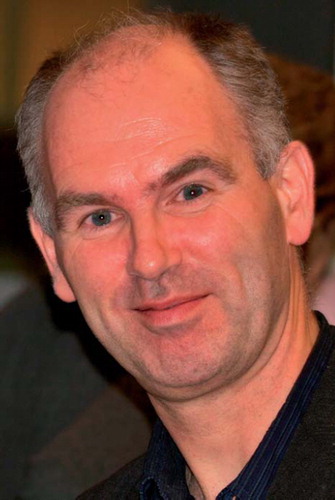In his Editorial in the previous issue of The European Journal of General Practice, Henk van Weert expressed the hope that politicians would have the courage to translate the evidence for a cost-effective health care system into a justified policy, i.e. to invest in a health care system based on gate-keeping family physicians who provide personal continuity of care in well organized group practices with a list system (Citation1). Similarly, Teresa Pawlikowska, in her recent PhD thesis on ‘patient enablement’ argues for the recognition of the importance of continuity of care for patient centred outcomes of care (Citation2).
In contrast, the Dutch Minister of Health, Welfare and Sport recently announced an ‘investigation’ into alternative funding for general practitioners (GPs). She launched the idea of paying GPs per consultation only, i.e. to stop paying the annual fee for each patient on the GP's list. According to the Minister, this would allow patients to visit different health care providers for different complaints. New—cheaper?—providers on the ‘GP market’ would possibly create ‘more competition’. I may be naïve in thinking that the main objective of most GPs is ‘providing quality of care’, and not ‘pursuing revenue maximization’, but I guess the Minister is naïve in expecting major cost reductions from ‘competitive market mechanisms’ in the small primary care segment (2.5%) of her total health care budget. I find it disturbing that a Minister of Health seems unaware of the key characteristics of family medicine, as expressed in the ‘European Definition’, with its key-elements person centeredness, integrated care and continuity of care (Citation3). Not only would implementation of her ideas disintegrate the infrastructure of primary care, it would also weaken the infrastructure for medical education and research.
Such a message suggests that some politicians have no idea of what really happens in our offices. You would expect politicians to sail on the beacons set by professionals and researchers. This journal tries to be one of the guiding lights, providing experience and evidence based information. I hope you have learned something from the rich collection of papers The European Journal of General Practice has published in 2011. A variety of topics passed in review, like palliative care, end-of-life decisions, out-of hours services, geriatric assessment, adverse effects of diabetes medication, sickness absence, care for immigrants, dealing with emotions of patients, and payment-models to improve access to primary care, or to influence quality and safety of primary care. We like publishing on clinical topics, and we introduced the ‘Clinical lesson’ to facilitate publication for ‘young’ authors. Furthermore, there were reports from important European conferences and meetings, and many European organizations active in family medicine or primary care share their news and views with us. Why not see for yourself at http://informahealthcare.com/journal/gen?
In this issue, again we present a variety of subjects, characteristic for general practice: obesity, polypharmacy, Pfeiffer's disease, alternative medicine and specialist messages on emergency ophthalmology and plastic surgery. Furthermore, two keynote speakers reflect on cardiovascular risk management and qualitative outcomes of chronic diseases, respectively. The management of infectious diseases was the theme of the last EGPRN conference, and you will find its abstracts in this issue.
Does this all matter? Will it have impact? Well, if you do your job well, that is writing relevant content, we will try to make a readable journal. Therefore, with the help of the publisher, we have restyled the journal: a new logo, photo's on the cover, and a modern page layout. You can send us photos of your practice (see our ‘Picture Request’ in Eur J Gen Pract. 2011;17:201) and you can follow us on twitter (http://twitter.com/EurJGenPract) now! We hope this all will increase our readership and our ‘societal impact’.
Our scientific impact, expressed as Impact Factor, will be published for the first time in June 2012. If the signs do not deceive us, our 2011 Impact factor will be around 1, which would place The European Journal of General Practice in the middle of the 16 journals in the category ‘Primary Health Care’ of the ‘Science Citation Index Expanded’ (http://ip-science.thomsonreuters.com/cgi-bin/jrnlst/jlresults.cgi?PC = D&SC = ML). That will help to establish an indispensable position of this journal; after all, the journal of Wonca Europe, representing ‘more than 45 000 family physicians in Europe’ (Citation4). That is a number that ministers should not neglect.
References
- Weert H van. Editorial. The economic crisis is the right moment to invest in primary care. Eur J Gen Pract. 2011;17:203–4.
- Pawlikowska TRB. Patient enablement: A living dialogue. Exploring perspectives on patient enablement and consultation quality (PhD thesis). Maastricht: Maastricht University; 2011.
- Wonca Europe Council Commission. The European definition of general practice/family medicine. Revised 2011 Edition. Wonca Europe 2011. http://www.woncaeurope.org/Definition%20GP-FM.htm (accessed 31 December 2011).
- Wonca Europe website. Wonca Europe in brief. http://www. woncaeurope.org/Wonca%20Europe%20in%20brief%20.htm (accessed 31 December 2011).
